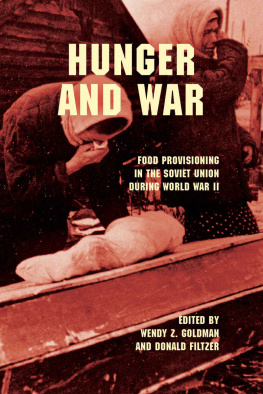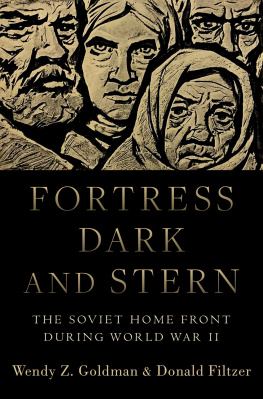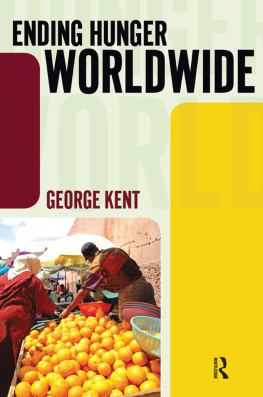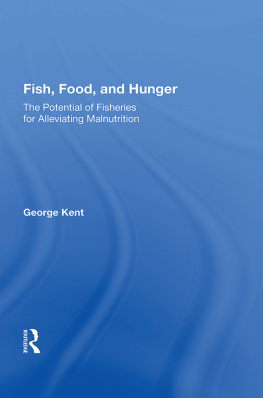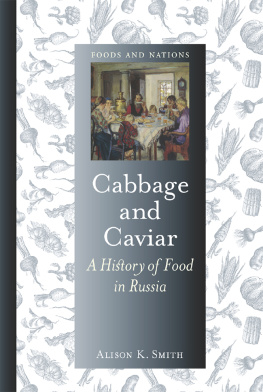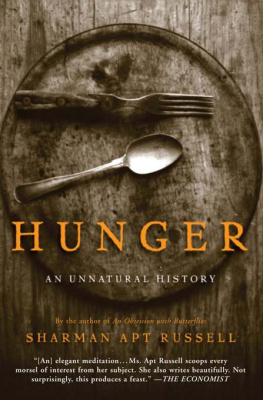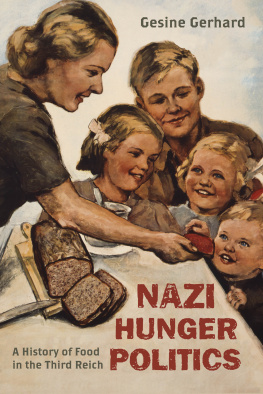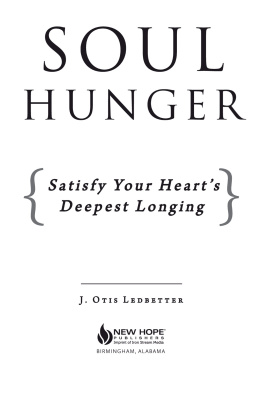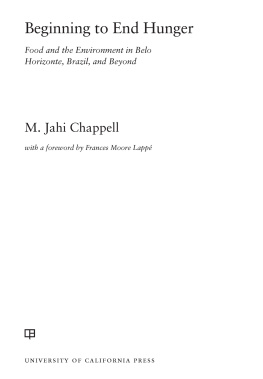HUNGER AND WAR
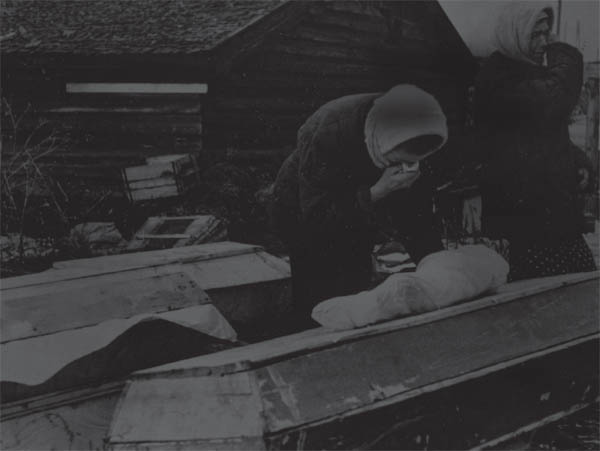
HUNGER AND WAR
FOOD PROVISIONING
IN THE SOVIET UNION
DURING WORLD WAR II
EDITED BY
WENDY Z. GOLDMAN
AND DONALD FILTZER

This book is a publication of
INDIANA UNIVERSITY PRESS
Office of Scholarly Publishing
Herman B Wells Library 350
1320 East 10th Street
Bloomington, Indiana 47405 USA
iupress.indiana.edu
2015 by Indiana University Press
All rights reserved
No part of this book may be reproduced or utilized in any form or by any means, electronic or mechanical, including photocopying and recording, or by any information storage and retrieval system, without permission in writing from the publisher. The Association of American University Presses Resolution on Permissions constitutes the only exception to this prohibition.
The paper used in this publication meets the minimum requirements of the American National Standard for Information SciencesPermanence of Paper for Printed Library Materials, ANSI Z39.48-1992.
Manufactured in the
United States of America
Library of Congress
Cataloging-in-Publication Data
Hunger and war : food provisioning in the Soviet Union during World War II / edited by Wendy Z. Goldman and Donald Filtzer.
pages cm
Includes bibliographical references and index.
ISBN 978-0-253-01708-6 (cloth : alkaline paper) ISBN 978-0-253-01712-3 (paperback : alkaline paper) ISBN 978-0-253-01716-1 (ebook) 1. Food supplySoviet UnionHistory. 2. World War, 19391945Food supplySoviet Union. 3. RationingSoviet UnionHistory. 4. HungerSoviet UnionHistory. 5. StarvationSoviet UnionHistory. 6. Nutrition policySoviet UnionHistory. 7. Food supplyPolitical aspectsSoviet UnionHistory. 8. World War, 19391945Social aspectsSoviet Union. 9. War and societySoviet UnionHistory. 10. Soviet UnionSocial conditions19171945. I. Goldman, Wendy Z. II. Filtzer, Donald A.
HD9015.S652H86 2015
363.80947'09044dc23
2014048990
1 2 3 4 5 20 19 18 17 16 15
CONTENTS
Donald Filtzer and Wendy Z. Goldman
Wendy Z. Goldman
Brandon Schechter
Alexis Peri
Rebecca Manley
Donald Filtzer
ACKNOWLEDGMENTS
THE EDITORS JOINTLY WOULD LIKE TO THANK THE AMERICAN Council of Learned Societies for a Collaborative Research Fellowship for their project on The Soviet Home Front: Work, Life, and Loyalty during World War II from January 2011 to December 2012. They would also like to thank the Department of History of Carnegie Mellon University for its support of the workshop on Food, Hunger, and Starvation: Feeding Front and Rear during World War II in the Soviet Union, held in April 2012, at which the contributors to this volume presented drafts of their chapters and offered critical comments on each others work. Finally, thanks are due to Dan Healey and the anonymous reviewer who read the manuscript for Indiana University Press and offered detailed, constructive suggestions on how the volume as a whole and its individual chapters could be integrated and improved.
The research for Donald Filtzers contribution to this volume is part of a larger project, Health, Disease, and Mortality on the Soviet Home Front During World War II, funded by a Research Leave Fellowship from the Wellcome Trust, grant number WT087202MA, during the academic years September 2009August 2012. He would like to thank Mark Harrison, Bob Davies, Dan Healey, Dave Leon, and Michael David for their advice and comments on earlier drafts of his chapter. Additional material was collected thanks to a research grant from the National Endowment for the Humanities during FebruaryAugust 2009 and research leave during JulyDecember 2012, as part of the ACLS Collaborative Research Fellowship, held jointly with Wendy Goldman. He expresses his deepest thanks to the archivists and reading room advisors at the State Archive of the Russian Federation (GARF) and the Russian State Archive of the Economy (RGAE), and to the librarians at the Central Scientific Medical Library in Moscow.
Wendy Goldman would like to thank the American Council of Learned Societies for its award of the Collaborative Research Fellowship, which made the research and writing of this book possible, and helped fund additional research, publications, and scholarly activity. She is also grateful to the International Department at Russian State University for the Humanities (RGGU), and the exchange program between RGGU and Carnegie Mellon University (CMU) for facilitating her research in Russia, and the efforts of the staff in GARF, RGAE, and the Russian State Archive of Social and Political History (RGASPI) in suggesting and locating materials.
Rebecca Manleys chapter is a much expanded version of papers presented at a conference, The Soviet Union in World War II (Paris, May 2011); at the Association for Slavic, East European, and Eurasian Studies (ASEEES) conference in November 2011; and at a workshop, Food, Hunger, and Starvation: Feeding Front and Rear during World War II in the Soviet Union (Carnegie Mellon University, Pittsburgh, April 2012). She would like to acknowledge the helpful comments received at these conferences and particularly at the workshop from which this volume evolved. She is grateful to Paul Manley, who served as a medical consultant, to her research assistant, Dinah Jansen, and to Don Filtzer, Dan Healey, and Alexis Peri, who, in addition to commenting on various drafts of her chapter, generously shared research materials with her. Research for this paper was funded by the Queens University Office of Research Services and the Social Sciences and Humanities Council of Canada and was facilitated by a sabbatical granted by Queens University.
Alexis Peri would like to thank Middlebury College for its generous financial support in aiding the completion of this chapter. She is also grateful to Joyce Mao, Benjamin Graves, Yumna Siddiqi, Maggie Clinton, Max Ward, Catherine M. Ashcraft, Jamie McCallum, and the other contributors to this volume for comments and critical feedback on earlier drafts. Finally, her heartfelt thanks to Igor Liubovskii and Natalia Afanaseva who granted her permission to use diaries from their family members, and to Tamara Staleva, Olga Prutt, and Tatiana Voronina for helping broker these permissions.
Brandon Schechter would like to thank Thomas Lacqueur, Victoria Frede, Yuri Slezkine, Dan Healey, Jeffrey Hass, Nikita Lomagin, Bair Irincheev, Oleg Budnitsky, Jochen Hellbeck, the members of the Russian History Kruzhok at the University of California, Berkeley, the anonymous reviewer for Indiana University Press, and Milyausha Zakirova for their comments and guidance in writing this chapter. He would also like to thank Konstantin Sergeievich Drozdov, Sergei Vladimirovich Zhuravlev, and Yuri Aleksandrovich Petrov of the Institute of Russian History, Russian Academy of Sciences (IRI RAN) for allowing him access to their fabulous holdings, and the archivists and reading room advisors at RGASPI, GARF, and the National Archive of the Rebublic of Tatarstan (NART) for their help in finding materials. Research for this chapter was generously supported by a Deans Dissertation Research Fellowship from uc Berkeley and a Fulbright International Institute of Education Fellowship.

